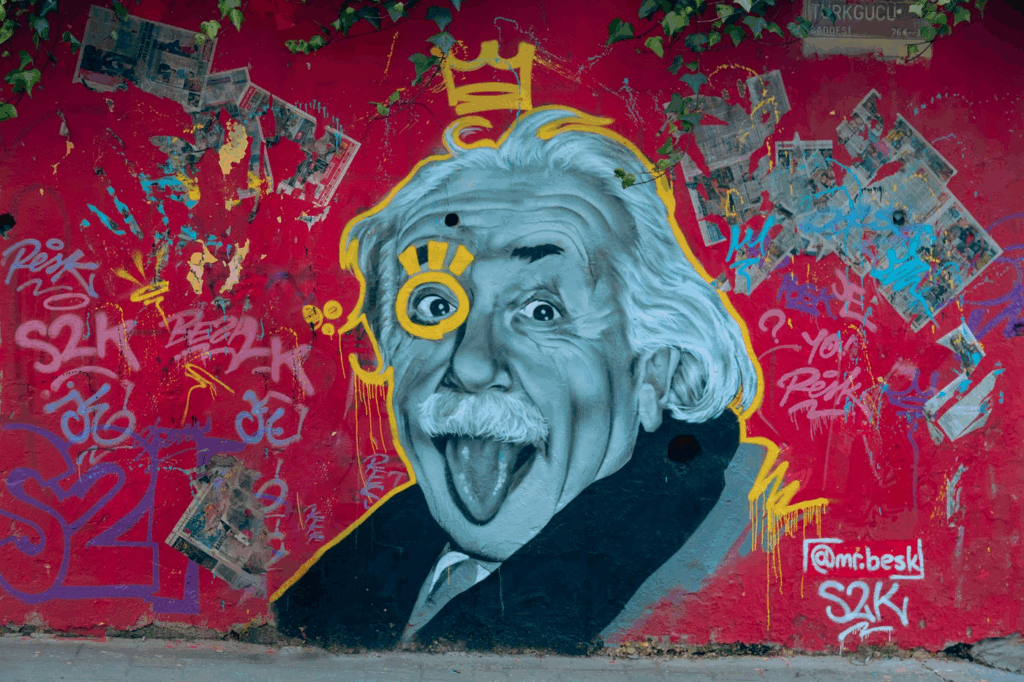This article will explore practical habits, daily routines, and effective learning strategies that can help you get smarter and become a genius in 12 months.
There are straightforward steps and effective tools that can help you change your mindset and achieve your goals. There are also an entire year’s worth of activities that will help you in this transformation and learning.
How to Become a Genius in Just 12 Months

Build a Growth Mindset (Month 1)
- There must be a rational belief that growing and becoming more intelligent is always possible.
- Substitute unhelpful and self-defeating behavioral patterns with challenging and achievable actions and educational goals.
- Daily introspection, and practicing and questioning one’s own behaviors and learning to become a more knowledgeable individual should be a focus.
Train Focus & Deep Work (Month 2)
- Maintain distraction-free and structured work environments. 2-hour, uninterrupted work sessions, should be done, ideally at the same time.
- Take a breather between work sessions to refresh and re-energize.
- Use the Pomodoro technique to schedule breaks, and maintain a proper schedule.
Improve Memory & Retention (Month 3)
- You should actively self-quizz and test yourself at the end of a learning session.
- Use spaced repetition with educational technology (such as Anki and digital flashcards) to learn and acquire knowledge over time.
- Teaching someone else a topic that you just learned is a great way to reinforce the information that you learned.
Read Smarter, Not More (Month 4)
- Read and select books that actually help to improve and increase one’s own knowledge and help them to think more effectively.
- Summarize a chapter of a book, and take structured notes while you read.
- Application of knowledge should always be done as soon as a book is finished to help reinforce the information.
Strengthen Critical Thinking (Month 5)
- Analyze evidence and information with an investigative lens.
- Use logical and structured sequences of steps to solve a problem.
- Take the time to think of all sides of an issue that you might be personally affected by. You should always think and work to create a solution to the issue.
Boost Creativity & Innovative Thinking (Month 6)
- Conduct brainstorming sessions over short time periods every day.
- Take up more creative activities.
- Find ways to join different ideas for new inspiration.
- Find ways to join different ideas for new inspiration.
Intensively Learn Something Challenging (Month 7)
- Select something challenging to your brain (coding, math, language).
- Set aside 1 to 2 hours for practice every day.
- Record your progress week by week.
Enhance Your Communication & Writing Skills (Month 8)
- Every day, summarize what you learned and wrote it down.
- Speak and practice articulate and confident speech.
- Storytelling and persuasion are skills you should learn to master.
Prioritize Your Brain Health (Month 9)
- Get adequate sleep for 7 to 9 hours on a daily basis.
- Spend a minimum of 30 minutes each day for physical activities.
- Eat brain-healthy food (fatty fish, nuts, fruits, greens).
Foster a Smart Circle (Month 10)
- Stay close to people who are smart and have a growth mindset.
- Get into online classes around the topics you are interested in.
- Take part in productive conversations on a regular basis.
Use Knowledge from your Projects (Month 11)
- Initiate a personal/collaborative research project or build a portfolio.
- Investigate and apply your skills in practical contexts.
- Get a mentor to review your project so you can improve it.
Improve and Move Up (Month 12)
- Look back and assess your progress. Find your strengths and the shadows around them.
- Discard ineffective habits; retain those that are effective.
- Establish new long-term targets for the upcoming year.
Daily Habits That Make You Smarter
Reading Daily
- Reading books, articles, or papers for 20–60 minutes.
- You should try to select areas of focus to broaden the way you think.
Deep Work
- Work for 1–2 hours without being distracted.
- Turn off notifications, and do not multitask.
Learning
- You should try to learn a new skill, concept, or language each day.
- For best results, use active recall and spaced repetition.
Summary Writing
- Write a brief 100–200 word summary on what you learned today.
- Helps boost clarity, memory, and communication.
Exercising the Brain
- Spend 10–15 minutes each day solving puzzles or brain teasers.
- Engage in memory games, or logic puzzles.
Questioning
- Explore the reasons for things and question assumptions.
- Rather than thinking faster, learn to think more deeply.
Social Media Usage
- Avoid mindless scrolling and digital noise.
- Stay focused and protect your attention.
Meditation of 5–10 minutes
- Do mindfulness practices to improve your focus.
- Helps reduce stress and sharpen thinking.
Having dialogues with intelligent individuals
- Analyze each other’s opinions as an exercise in critical thinking.
- Frequently invite others with different opinions to discuss differing viewpoints.
Use a learning diary
- Capture your reflections, thoughts, and learning milestones.
- To make your learning stick, spend a few minutes thinking about what you learned each week.
Daily workout
- Being active for 20-30 minutes each day will help your body and your brain.
- It will make you feel better, it will boost your energy, and it will help you think more clearly.
7-9 hours of sleep
- A good night’s sleep seven to nine hours is a necessity.
- Sleep is important for your memory, your ability to think critically and your problem solving ability.
Tools & Resources to Boost Intelligence
Learning Platforms
- Coursera – Science, technology, and critical thinking courses taught at the university level.
- Udemy – Courses that teach various skills in a short period of time.
- Khan Academy – Free education in subjects like math and physics, as well as elementary level math and fundamentals.
Memory & Brain Training Tools
- Anki – Use spaced repetition flashcards to reinforce long-term
- RemNote – Note combining note taking and spaced repetition.
- Lumosity – Games that train the brain in focus, speed, and reasoning.
Reading & Knowledge Tools
- Readwise – Saves, highlights, and reviews significant bits of texts.
- Blinkist – Provides summaries of popular books in a short time (15 minutes).
- Pocket – Allows users to save articles and set them aside to read later in a distraction-free manner.
Note-Taking & Idea Management Tools
- Notion – An all-inclusive workspace designed to organize notes, tasks, databases, etc.
- Obsidian – Provides users with a knowledge graph to facilitate deep thinking in addition to linking ideas.
- Roam Research – Enables networked thought and research workflows.
Focus & Productivity Tools
- Forest – A gamified time-blocking tool to help users focus.
- Cold Turkey – A distraction-free tool that blocks websites and apps in order to prevent distractions.
- Todoist – A tool that helps users to efficiently organize their tasks and goals for a day.
Creative Thinking Tools
- Miro – Virtual brainstorming and creating mind maps.
- Canva Whiteboard – Collaborative and visual idea mapping.
- MindMeister – Make mind maps for idea exploration.
Intelligence-Boosting Books
- Thinking, Fast and Slow Daniel Kahneman
- Deep Work Cal Newport
- Atomic Habits James Clear
- How to Read a Book Mortimer Adler
Communication \& Writing Tools
- Grammarly – Clarity and correctness in writing.
- Hemingway Editor – Tough and simplicity.
- QuillBot – Rewriting and phrasing better.
Physical \& Mental Wellness Apps
- Headspace – Focus and calm through meditation.
- Calm – Mindfulness and breathing guide, sleep.
- MyFitnessPal – Supports brain health through diet.
Content for Smarter Thinking
- TED Talks – Wisdom of world experts.
- YouTube: Kurzgesagt, VSauce, Veritasium.
- Podcasts: Lex Fridman, Huberman Lab, The Knowledge Project.
Common Mistakes to Avoid

Trying to Learn Too Many Things at Once
- A wide net leads to poor outcomes.
- Work in smaller sets with fundamental mastery.
Consuming Without Applying
- Deep understanding comes from practice and implementation.
- Some time after reading and learning, you should do something to put it in action.
Ignoring Deep Work
- The inability to think deeply may stem from a lack of multitasking.
- Make time for meaningful work.
Lack of Consistency
- The problem with learning bursts and then stopping is that it becomes use it or lose it.
- It’s the small, daily activities that are important, not the big events, that will help you break the top of the learning curve.
Avoiding Difficult Tasks
- Learning something new and working at problem solving will engage the brain at the next level and will improve intelligence.
Not Tracking Progress
- Measuring outcomes will put the activities to you and show you where to focus your effort.
- You should keep a record for your reading, learning, and hours spent in growth and areas of skill.
Relying Only on Motivation
- You should not depend on motivation for your inner discipline. Systems, on the other hand, will take care of that.
- Establish habits instead of hoping to “feel like learning.”
Ignoring Your Health
- Your mental abilities will take a dive when you don’t prioritize sleep, eat well, and/or exercise.
- The mind needs to be fit correlating to how well it performs.
Ignoring Mentorship
- Learning alone will take you much time to learn and may cause you to repeat similar mistakes.
- Try to obtain other people’s insights regardless of their expertise.
Scrolling Social Media
- Social media can damage your ability to concentrate.
- Be mindful of how long you are on your screen.
Not Learning from Mistakes
- Not making mistakes will only hold you back from reaching your full potential.
- Don’t take failures as a reflection of yourself. See it as data.
Not Reviewing Learning
- If you don’t regularly review the material, you may forget 70-90% of it.
- Use spaced repetition and active recall regularly.
Conclusion
One does not have to be a genius from the start to master the art of genius in just 1 year. Genius can be cultivated. It starts with a focus to master the art of structure, systems, a positive mindset, and the right habits.
These will help your mental faculties grow. Incorporate a commitment to intense concentration, perpetual education, the enhancement of your cognitive storage, ingenuity, and the application of learned concepts to the world. Create an ecosystem of unwavering positive desires to advance the world with aspects conducive to the education of the elevation of your world.
Prove that genius can be obtained with the right discipline focus with your habits and mind. With consistency and the right discipline, you will be shaping a positive psychological pathway and correcting the structure of your smart mental habits and skills with a journey that will start with a small step from you today.
FAQ
Is it really possible to become a genius in one year?
Yes—if you define “genius” as significantly improving your thinking, learning speed, creativity, and problem-solving skills. You may not become Einstein, but you can become far smarter and more capable in 12 months with consistent effort.
Do I need special talent to become a genius?
No. Modern research shows intelligence grows through habits, practice, and environment. Discipline is far more important than natural talent.
How many hours per day should I study or practice?
Aim for 1–3 hours of focused deep work daily. The key is quality, not quantity. Even 60 minutes of intense practice is more effective than 4 hours of distracted work.









